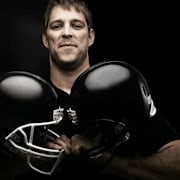Tailoring Performance-Enhancing Drugs to Specific Sports

In the hypothetical scenario where stance against performance-enhancing drugs (PEDs) is abolished, the strategic use of different substances would vary significantly across sports. The effectiveness of a PEDs is largely dependent on the physical demands and specific characteristics of the sport. For instance, the use of testosterone and painkillers might be advantageous in hard hitting sports like rugby where strength and the ability to endure pain is vital. However, these substances might not yield the same benefits in swimming, where different physical attributes are needed.
In endurance sports like cycling, the benefits of drugs such as Erythropoietin (EPO) and testosterone are well-documented. EPO, in particular, can drastically improve an athlete’s performance by increasing the hematocrit level. Essentially boosting the oxygen-carrying capacity of the blood and giving an athlete superhuman endurance. Historically, before reliable tests were developed, cyclists could elevate their hematocrit levels well beyond natural limits, significantly enhancing their performance. The Union Cycliste Internationale (UCI) eventually set a safety threshold for hematocrit at 50%, well above the normal range of 30-40%, to prevent dangerous health conditions associated with excessively thick blood.
Conversely, in sprint sports or events requiring rapid recovery, such as multiple swim events at the Olympics, EPO can also be beneficial despite its primary association with endurance sports. EPO can enhance recovery times between bouts, allowing athletes to maintain performance over the course of multiple events. The increased oxygen delivery helps fight off fatigue, which is crucial in shorter, high-intensity events.
The distinction in PED usage across sports is further illustrated by Lance Armstrong's admission that traditional doping methods like testosterone and amphetamines, which he termed “low octane doping,” provided marginal gains compared to the revolutionary impact of EPO. The substantial performance boosts seen with EPO, reflected in unprecedented athletic feats, underscore its unparalleled efficacy for endurance sports.
Ultimately, the choice of PEDs would be strategically tailored to align with the specific physical demands of each sport. The nuanced understanding of how different substances affect the body enables athletes to select the most effective doping regimens, should the ethical and legal constraints be removed. This theoretical analysis highlights the complex interplay between sports physiology and pharmacology, illustrating how targeted enhancements could redefine athletic performance in various disciplines.
